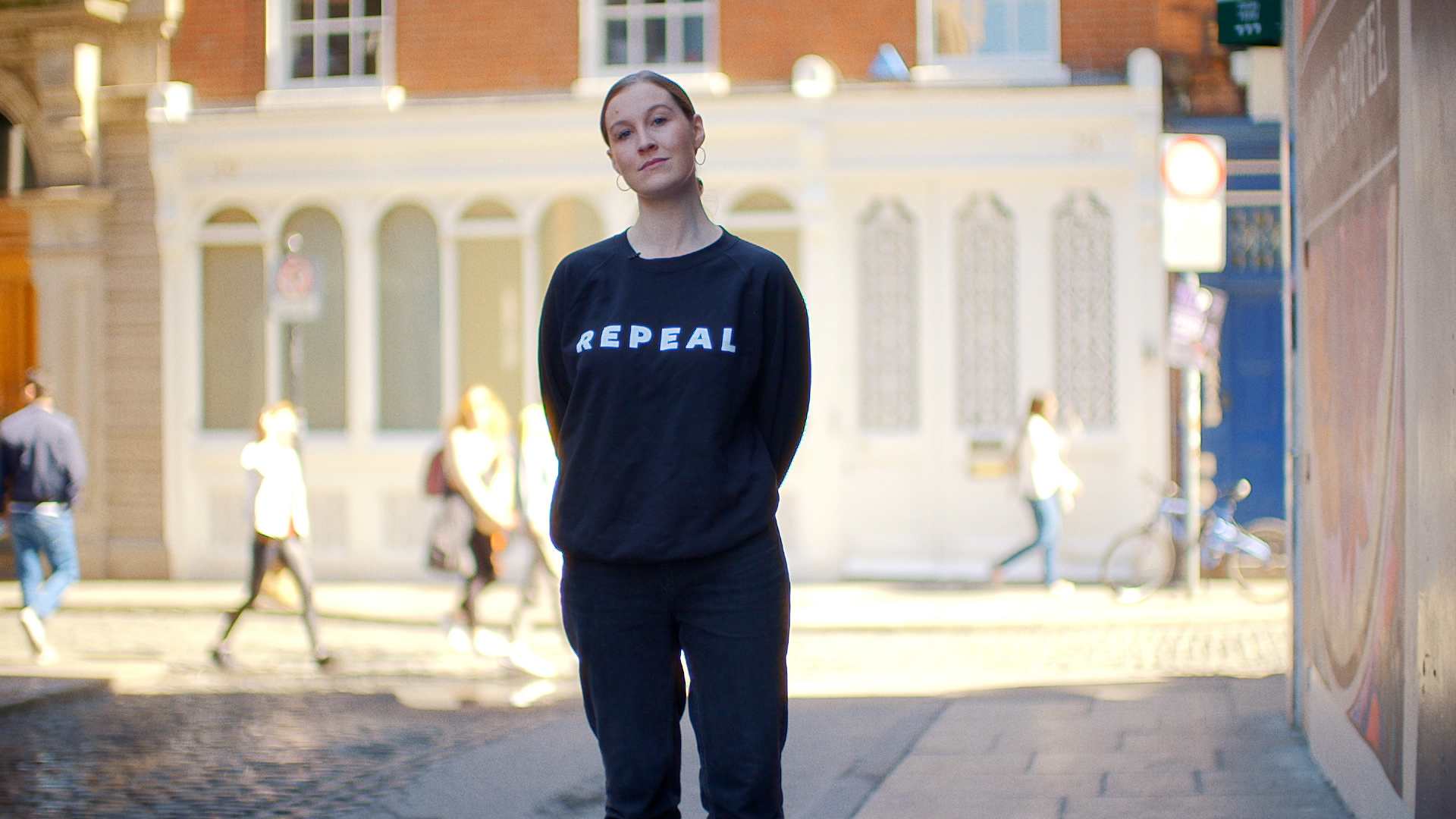Tomorrow, after months of campaigning, soul-searching and deciding, Ireland will finally vote in a referendum referred to as ‘repealing the 8th’, which could see Irish women finally receiving the right to decide what to do with their own body and to be able to receive safe, free healthcare in their homeland, rather than being forced to travel to England for an abortion.
If, before these last few months, you weren’t sure about the 8th Amendment and what it actually means, then here it is broken down: currently, in 1983 the 8th Amendment to the Constitution of Ireland recognised “an equal right to life of the mother and the unborn”. Adding it into constitutional law means that technically speaking, Irish women would only be allowed an abortion in extreme circumstances, where the life of the mother is at risk. In practice though, the 8th Amendment means that up to nine women a day, even those whose pregnancies are not viable or whose mental or physical health is at risk, are forced to board Ryanair flights to England to terminate their pregnancies. Those who aren’t able to travel are forced to take illegal, dangerous abortion pills — something that’s punishable with up to 14 years in prison. Essentially, at base level, this means that Irish women don’t have the right to choose what happens to their own bodies.
Tomorrow, after months of activism, a yes vote would give Irish women a level of bodily autonomy they’ve never had before. But in the midst of all the campaigning, protesting and outlandish stunts that have surrounded the run up to the 8th there have been plenty of myths and misunderstandings about what a yes vote tomorrow would actually mean.

Plenty of no, or uncertain voters argue that a Yes vote just means letting abortions happen in Ireland. But what that argument misses is that abortions already happen in Ireland. Since the 8th Amendment was introduced a staggering 170,000 people — men and women — travelled abroad for terminations. Some buy pills online, putting themselves at risk of prosecution. And women have abortions in Ireland already when their pregnancy has threatened their life, under the Protection of Life During Pregnancy Act.
Even with a no vote, abortions will continue to happen. A yes vote tomorrow doesn’t mean, as campaigners would have you believe, an abortion free for all. It just means making them safer for women who need them.
Another argument no voters fall back on is that they support the right to choose, but only in certain cases. They might support it, but only in cases of rape, or in cases where the pregnancy would result in severe abnormalities that would hurt both the mother and the baby. What that argument misses is this: Even if you only agree with abortion in specific cases, a no vote can’t do anything for these women. A no vote doesn’t help women who have been raped, a no vote doesn’t help women whose babies won’t survive a pregnancy. They’ll still be forced to travel to end their pregnancies; a traumatic experience compounded on the traumatic experience they’ve already had.
And it’s the same for voters who aren’t sure whether the current 12 week limit that would come with a Yes vote sits right with them. While 12 weeks is the standard period allowed by a GP to provide an abortion pill, the reality of the limit is that most women don’t even realise they’re pregnant until they’re several weeks along. And for those uncertain about whether they’re okay with that, there’s still the same key point to remember: a No vote means nothing will change. Tweaking the law and deciding what you personally are okay with is only possible after first getting rid of the current 8th Amendment.
In 2015, mother of two Claire Cullen-Delsol was ecstatic to discover she was unexpectedly pregnant again. For weeks, Claire and her husband prepared for their baby before scans revealed that it suffered from a rare chromosomal disorder called Patau syndrome, and wouldn’t survive beyond birth. The 8th Amendment meant that her trauma and loss was compounded by a trip to England to terminate her pregnancy, something she couldn’t do at home with her family. The experience was harrowing enough to convince Claire to become a pro-choice activist. She told Broadly: “I can’t heal while I know that every week two or three Irish couples have to travel to the UK to terminate a much wanted, but dying baby. And who knows how many more people are at home, suffering like I did?
“My greatest fear is that my daughter will have to experience what I went through, and this country will treat her as badly as it treated me.”

You don’t have to want to have an abortion yourself to vote to repeal tomorrow. You don’t have to agree with every aspect of the law to empathise with the women who need it. Crucially, it comes down to this: You don’t have to agree with abortion to repeal the 8th.
The issue is complicated, multi-faceted and deeply personal — and the current law we have in place doesn’t reflect that at all. It hurts Irish women, it hurts Irish men, it stops Irish doctors from doing their job. Between 1980 and 2016, at least 170,216 women have been forced to travel abroad for an abortion. Ireland has one of the world’s most restrictive abortion laws, but we can’t keep outsourcing our health care, and shuttling people in need of help off to another country like a dirty secret. Despite any caveats you might have, know that the 8th Amendment lets women down.
If it exists only for one more day, that’s still a day too many.
